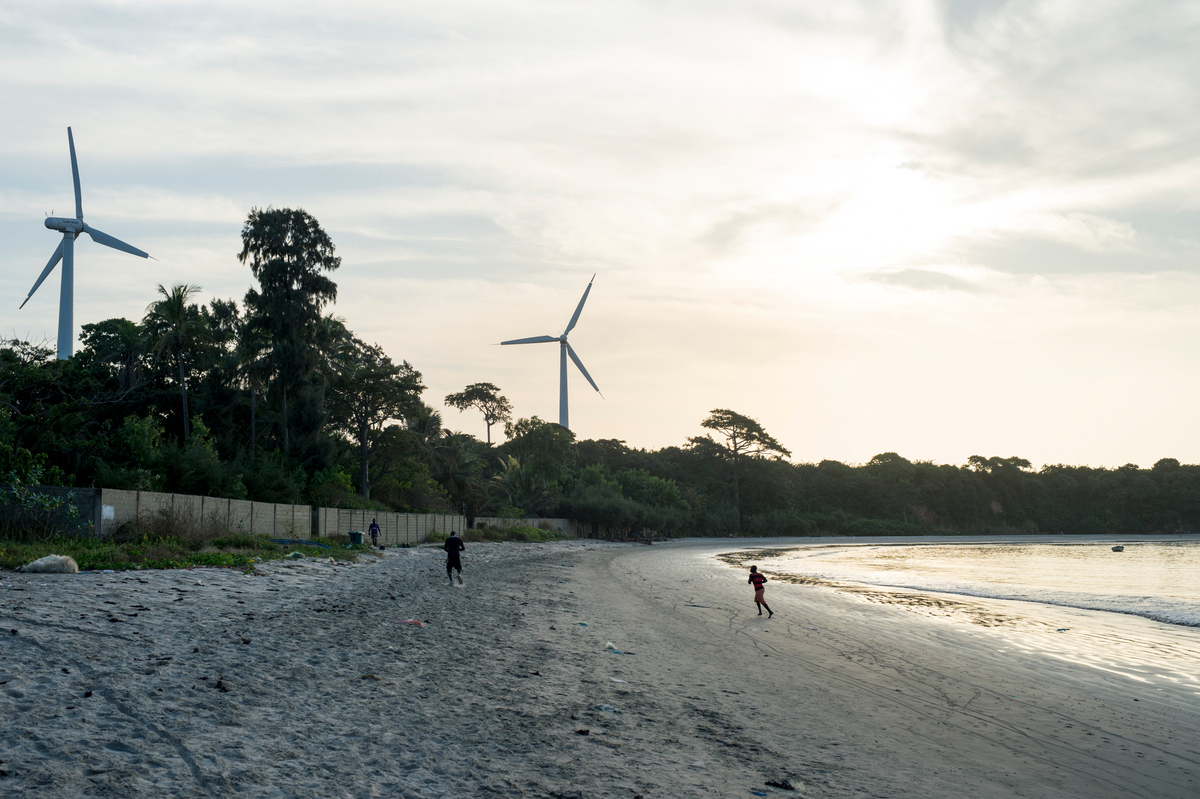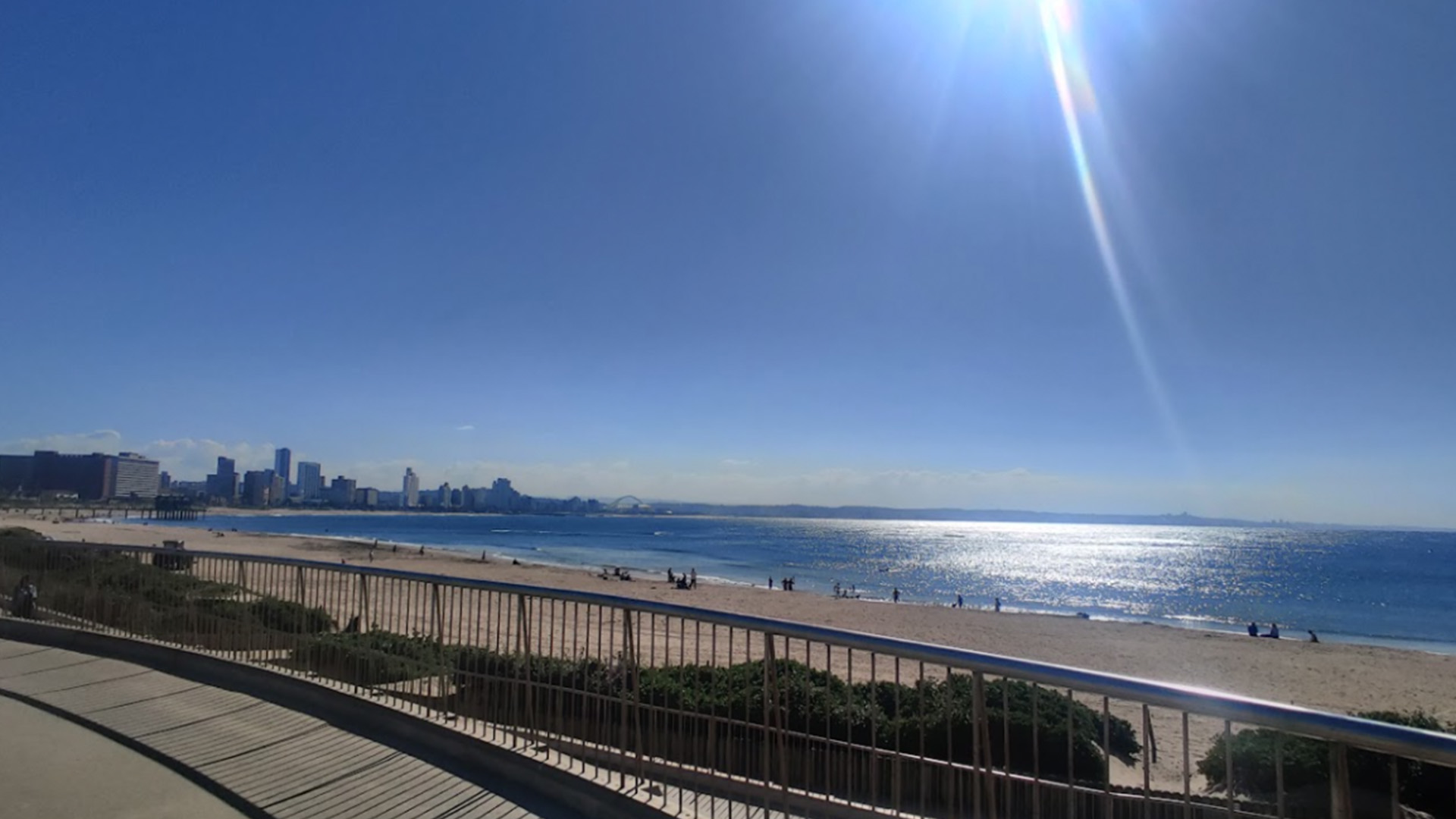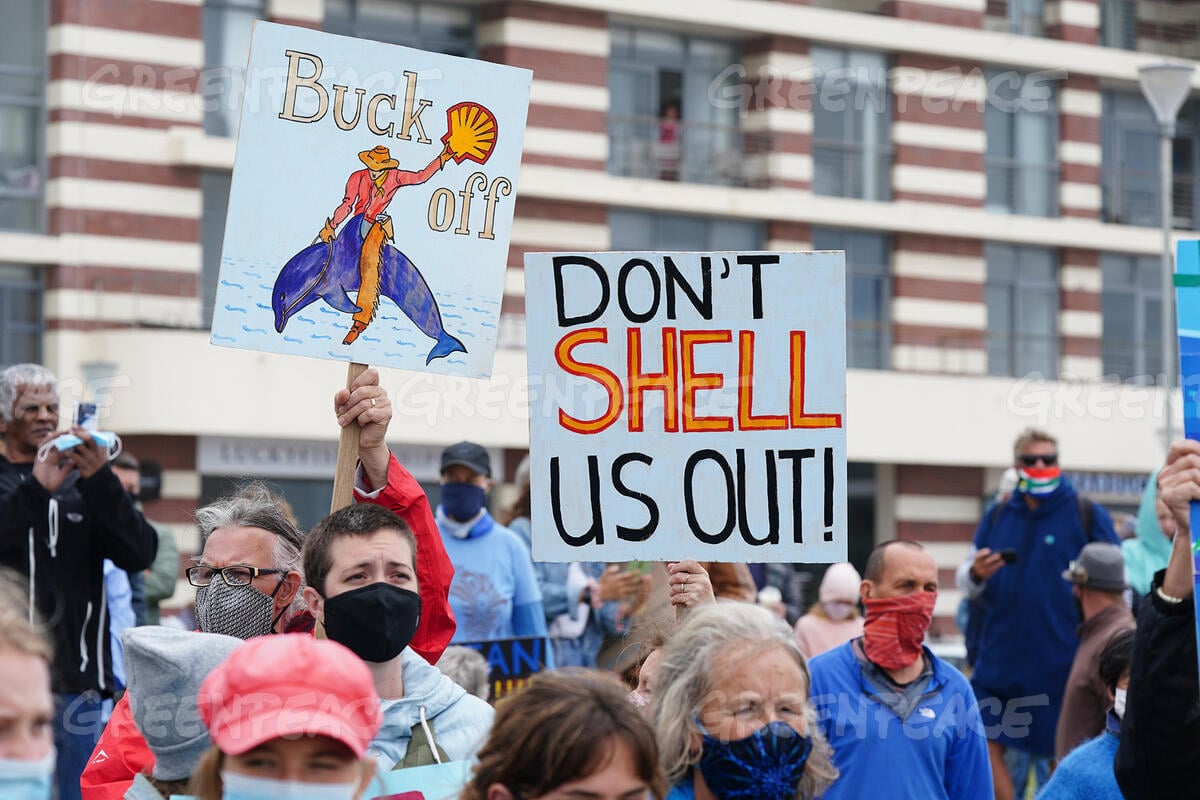How the oil giant is using AFCON to greenwash its image while exploiting players, fans, and the environment.

On the eve of the Africa Cup of Nations, which will go on through January and February 2024 Greenpeace Africa, in partnership with Kick Polluters out and Magamba Network released a video featuring Zimbabwean comedian Munashe Chirisa and British Bafta Award winning writer and performer Jolyon Rubinstein. The duo portray TotalEnergies as an organisation wilfully exploiting AFCON’s millions of global viewers to boost its image, while continuing to profit from climate-wrecking fossil fuel extraction across the continent.
Whilst in Senegal, partners from the same movement (Kick Polluters Out) known as Journal Rappé came out with their own take on how to address TotalEnergies rampant exploitation across Africa and greenwashing of the beautiful game.
You can watch and share the videos above – but we wanted to take a deep dive into what all the fuss is about Total and their sponsorship of AFCON 2023 as it is called (due to being postponed last year because of, you guessed it – fears of heavy rain and flooding that killed at least 5 people in Cote D’Ivoire, the host country, the previous year around the same time).
Let’s start with a bit of a summary of what the oil giant is up to across Africa, here are some highlights:
- In Uganda, the company operates the controversial Tilenga and EACOP (East African Crude Oil Pipeline) projects both of which have been marred by allegations of environmental degradation, and violations of food, land and human rights.
- The contentious EACOP is also set to pass through Tanzania, as the drilled oil will be transported to the port of Tanga before being distributed to Global North countries. Tanzania faces social and environmental challenges similar to those in Uganda with respect to the project.
- South Africa’s Ministry of Environment recently greenlighted TotalEnergies to drill gas and oil off the Cape coast.
- TotalEnergies also has a 24% stake in Nigeria’s Egina fields, whose daily oil production is nearly 10% of the country’s total output.
- Congo’s Moho Nord offshore oil project, the largest project to ever be launched in the country, is also largely operated by Total with a 53.5% stake.
- TotalEnergies also has a 30% stake in Angola’s Kaombo offshore oil project, launched in July 2018. The project director boasts that the project is their largest development yet, seeing as they are going “from 1400 to 1950 metres” deeper and “200 kilometres farther offshore”.
So, let’s get into it – the 2023 Africa Cup of Nations, otherwise known as 2023 AFCON (January and February 2024) is here and this is its 34th edition. Emblazoned over the vibrant chants of African fans in the sun-soaked stadiums of Cote d’Ivoire will be Total’s logo shimmering on banners, jerseys, and other merchandise – underneath which lies a story of environmental pollution, disregard for human rights, and a marketing strategy that can only be described as sportswashing.
In Africa, football is more than just a physical activity. It is a sport that holds social, emotional, and cultural significance to many. The most important aspect of this sport is that it transcends cultural differences and language barriers and brings people together, nurturing solidarity. When people come together to watch a game, their differences no longer matter as they identify as a community of football lovers. This unity has nurtured – and continues to nurture – friendships and promotes peace and social cohesion. Football is also a source of entertainment for people across Africa, not to mention its role in promoting cultural expression.
But TotalEnergies’ involvement in the 2023 AFCON is everything African football is not. Total’s sponsorship has nothing to do with football and everything to do with diverting attention from the environmental damage they are subjecting the planet to, and profiting from.
TotalEnergies’ trail of devastation in Africa
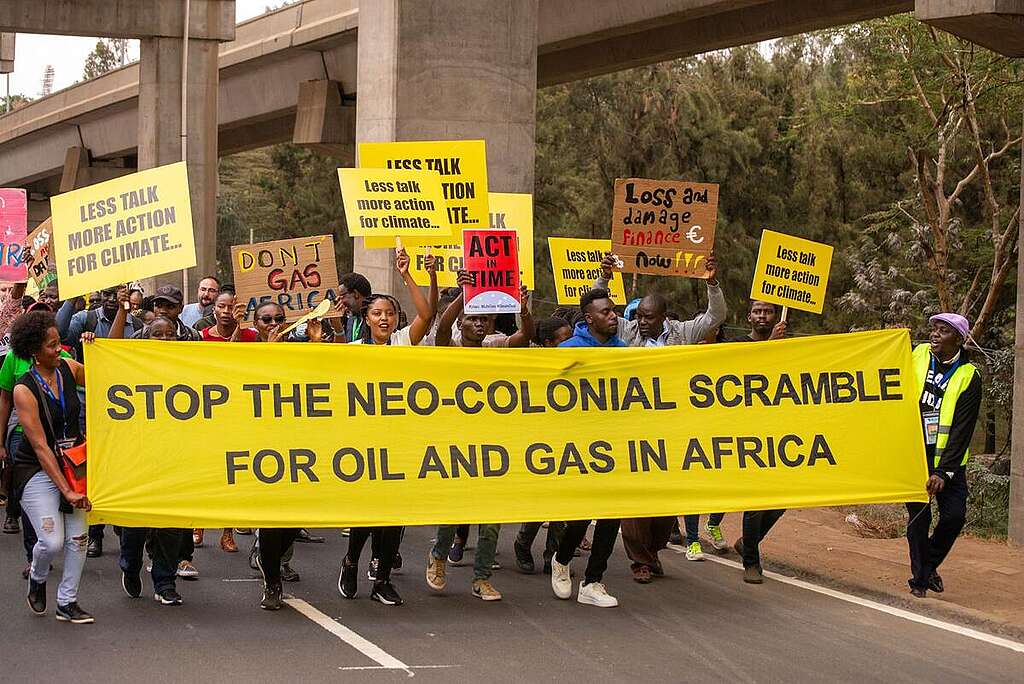
For years now, TotalEnergies has been entangled in numerous legal battles because of their role in the climate crisis and their refusal to take responsibility. Just recently, four environmental protection groups – Stop EACOP, Wild Legal, Darwin Climax, and Sea Shepherd France – sought criminal judgement against the multinational for aggravating climate disaster and subsequently causing property damage and risking people’s lives. Specifically, TotalEnergies has shown its disregard for African communities and livelihoods by:
1. Endangering Africa’s water sources through their destructive projects
TotalEnergies has a history of polluting water sources in various African states, failing to take accountability, and using greenwashing and sportswashing tactics, like their sponsorship of the 2023 AFCON, to mask their destructive operations.
In 2021, a response statement by the #StopEACOP Alliance shared the sentiments of numerous organisations in reaction to TotalEnergies’ projects in Uganda and Tanzania. Among these organisations was E-Tech International, an engineering firm contracted by Oxfam to review the adequacy of the mitigation measures listed in the ESIA report for the EACOP project.
The reports findings confirmed that the measures were inadequate, emphasising the project’s harmful nature to local communities and the environment. The firm was especially concerned with Total’s strategy, considering that the EACOP project would have oil spills over its lifetime, resulting in the contamination of vital clean water sources.
The firm’s chief engineer stated that the engineering reality is that spills will occur over the course of the project and that cannot be avoided. But even the risk of polluting water sources for surrounding communities is not enough to stop TotalEnergies’ environmental destruction.
Elsewhere, in Nigeria TotalEnergies continues to pollute water sources such as the Niger Delta, which already ranks among the most polluted areas on earth due to oil spills. Just recently, there was an oil leakage in one of TotalEnergies’ oil fields – Egina fields – in Nigeria during loading operations. This oil spill poses a danger to the water sources surrounding the field and the local communities that rely on these resources.
In response to the spill, TotalEnergies explicitly mentioned that the leak was minor, which contradicted the assessment by NOSDRA (The National Oil Spills Detection and Response Agency), who confirmed that the oil spill was not “a minor one”. The spill, coupled with Total’s understatement of the situation, signals a lack of transparency from a company that claims to be contributing to the planet’s sustainable development in the face of climate change.
Greenpeace Africa’s campaigns don’t take money from corporates or governments but rely on donations from people like you, would you take a moment to give what you can?
2. Fostering over dependence on fossil fuels through continued investment in these dirty fuels
Every 3 hours and 37 minutes, the fossil fuel industry collectively produces a football stadium full of oil. If Antonio Guterres’ words are anything to go by, the continued investment in fossil fuels by oil and gas companies like TotalEnergies is “moral and economic madness”. Last year alone, the company made 6 million dollars every 90 minutes. 90% of its expenditure is still targeted towards fossil fuels.
Besides the already controversial EACOP and Tilenga projects in Uganda and Tanzania, their lack of concern for the climate crisis in Africa is also clear in their continued investment in fossil fuel exploration in Southern Africa. TotalEnergies’ unreliability is further evidenced by their failure to take responsibility for the marine biodiversity and livelihoods that stand to be destroyed along the way.
3. Perpetrating land and human rights violations
Total’s operations in Africa have not only been aided by lax environmental regulation but also the weak human rights standards, and its Uganda and Tanzania projects are proof of this.
In addition to the ecological disturbance that TotalEnergies is already subjecting Uganda and Tanzania to, the construction of EACOP will also be happening at the expense of local communities, who have been inadequately compensated – or not at all – after being displaced from their land.
Unfortunately, most of the families that have been evicted from their land say they were reluctant to sell and leave their land. However, intimidation and harassment from government officials and representatives from the oil giant caused them to cave. Regrettably, several of these families have fallen into debt in an attempt to feed their families due to compensation delays or meagre compensation. Many children have even dropped out of school due to lack of fees, exemplifying rights violations.
Total’s latest infraction is mistreatment of graves along the crude oil pipeline path from Uganda to Tanzania, despite warnings from community members about their presence.
4. Loss of livelihoods
Roughly 60% of Uganda’s population depends on agriculture, tourism and travel, and fishing for survival. Additionally, about 85% of arable land in Tanzania is used by subsistence farmers to earn a living and feed their families.
For many of these displaced families, giving up their land meant abandoning their livelihoods and finding new ways to make a living. These families hoped to achieve this using the compensation promised to them.
However, Total’s failure to uphold their end of the bargain while restricting families from using their land has driven them further into poverty and debt, and prompted teenage pregnancies, gender-based violence, and poor quality education.
In Southern Africa, Total’s offshore oil drilling also threatens the livelihoods of small-scale fishers and increases food insecurity, which is why these projects must be discontinued.
Watch and share our videos taking down TotalEnergies below so more people make noise, let’s get Total to stop drilling, to start paying and get booted out of our beautiful game.
Sportswashing is Harming the Football Industry
In 2021 when Total rebranded to TotalEnergies, the company claimed that the move signalled a contribution to sustainable development, as it aimed to play its part in the energy transition. The company went on to voice their intention to provide cleaner, and more affordable and dependable energies. However, its actions contradict these words as TotalEnergies continues to expand its fossil fuel investments. Besides the obvious greenwashing, the company has also been engaging in sportswashing as a marketing tactic, and to distract from their wrongdoing.
Unfortunately, this practice harms the sports industry, particularly AFCON, which is among the largest football tournaments globally. The burden of Total’s involvement in AFCON 2023 will be carried by the industry, the players, and AFCON fans worldwide.
Here is how TotalEnergies’ sportswashing is harming the football industry.
1. Using footballers as pawns in Total’s deception
TotalEnergies sportswashing through AFCON 2023 is an exploitation of the players that will be participating in the game. Using talented and committed football players to promote a false narrative about who the company is and advance their agenda is deceitful. Worse is that the company is still drilling and polluting away at the expense of local communities who remain unheard and unseen across the continent.
2. Destroying the trust that football fans across the continent have in the sport
Africa’s football is founded on trust, with football fans across the continent banking on the integrity of the players and the industry. Besides fair competition, it is also a shared expectation that sponsors of these games share the same values.
TotalEnergies’ decades of community exploitation and environmental damage contradict this perception and portray a lack of integrity, raising questions about their motives and values. In addition, the fact that the oil giant was able to secure an 8-year sponsorship deal despite the disconnect in their values and those of the game is reason enough for fans to question the genuineness of the organisers of AFCON – the Confederation of African Football (CAF).
3. Compromising the integrity of athletes
Athletes are a huge part of what draws football fans to the game. Their abilities, dedication, and perseverance are inspiring and enable fans to form deeper connections with them. Above all, football players represent social responsibility and fair play, and are often considered advocates of positive social change.
Needless to say, having the Sadio Mane’s and Mo Salah’s of the game (who both have done a lot to empower their own communities) associated with companies like TotalEnergies risks making them look complicit and compromises their integrity in the eyes of the fans, which is unfair and may hurt their reputation. and all the great work they do.
4. Triggering health hazards
TotalEnergies’ operations endanger the health and wellbeing of the athletes they pretend to value, and their fans. Studies have shown that approximately 400,000 premature deaths are associated with air pollution related to the extraction, transportation, and burning of fossil fuels, and the figure continues to increase at an unprecedented rate. Keep in mind that this figure does not factor in premature deaths caused by water pollution by these dirty fuels or loss of livelihoods. Besides respiratory diseases, air pollution is associated with illnesses such as skin disease, hypertension, and depression.
5. Disrupting the event
Disruption of an event due to extreme weather events is not an uncommon occurrence in the football world. The 2023 AFCON, which was initially set to take place in June and July 2023, was postponed to the beginning of 2024 due to, you guessed it, adverse weather events in Cote d’Ivoire at that time of year – where around the same time in 2022 at least 5 people were killed by severe flooding and heavy rains. This disruption is just one of many as rapidly rising carbon emissions trigger heat waves and floods, posing a threat to the safety of soccer players and fans. The only way to stop these emissions from rising is to end fossil fuels and prevent the expansion of international oil and gas companies like TotalEnergies.
Just take last year’s Cricket World Cup where England player Joe Root commented on the alarming levels of air pollution which hung over the tournament, a visualisation of our battle against ever increasing pollution and the climate crisis, “I’ve obviously played in hotter conditions, and probably more humid conditions. But it just felt like you couldn’t get your breath. It was like you were eating the air. It was unique.”
End Sportswashing Now
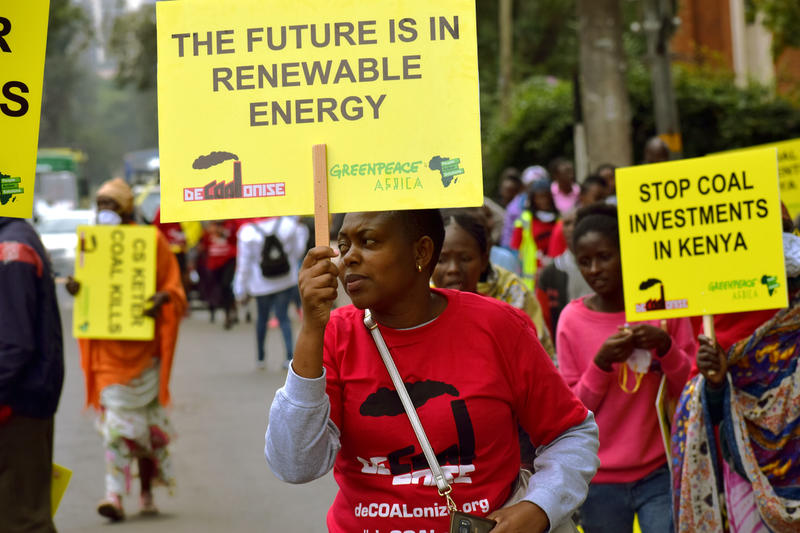
It is clear that TotalEnergies profits from our loss. Communities who have lost their land, property, or loved ones because of TotalEnergies’ operations know this too well. To distract from this damage, the company engages in greenwashing and sportswashing, a case in point being its sponsorship of AFCON 2023.
We can no longer allow TotalEnergies to continue bending the rules at our expense. It is time for the company to take responsibility for their part in the climate crisis, starting with phasing out fossil fuels, paying for the damages they have caused across the continent, and investing in renewables.
We also urge the president of the CAF (Confederation of African Football), Patrice Motsepe, to end toxic sponsorship by severing ties with TotalEnergies and to refrain from partnering with fossil fuel companies moving forward.
There is no football on a dead continent, which is why we must end sportswashing.
Greenpeace Africa’s campaigns don’t take money from corporates or governments but rely on donations from people like you, would you take a moment to give what you can?
Greenpeace Africa is part of Kick Polluters Out – a movement of African creatives and activists pushing back against sportswashing and greenwashing by Big Polluters. The network is convened by Magamba Network (Zimbabwe) and includes Buni Media (Kenya), and Journal Rappé (Senegal). Allies of the wider campaign include Don’t Gas Africa, Fossil Free Football and Cool Down Network.

